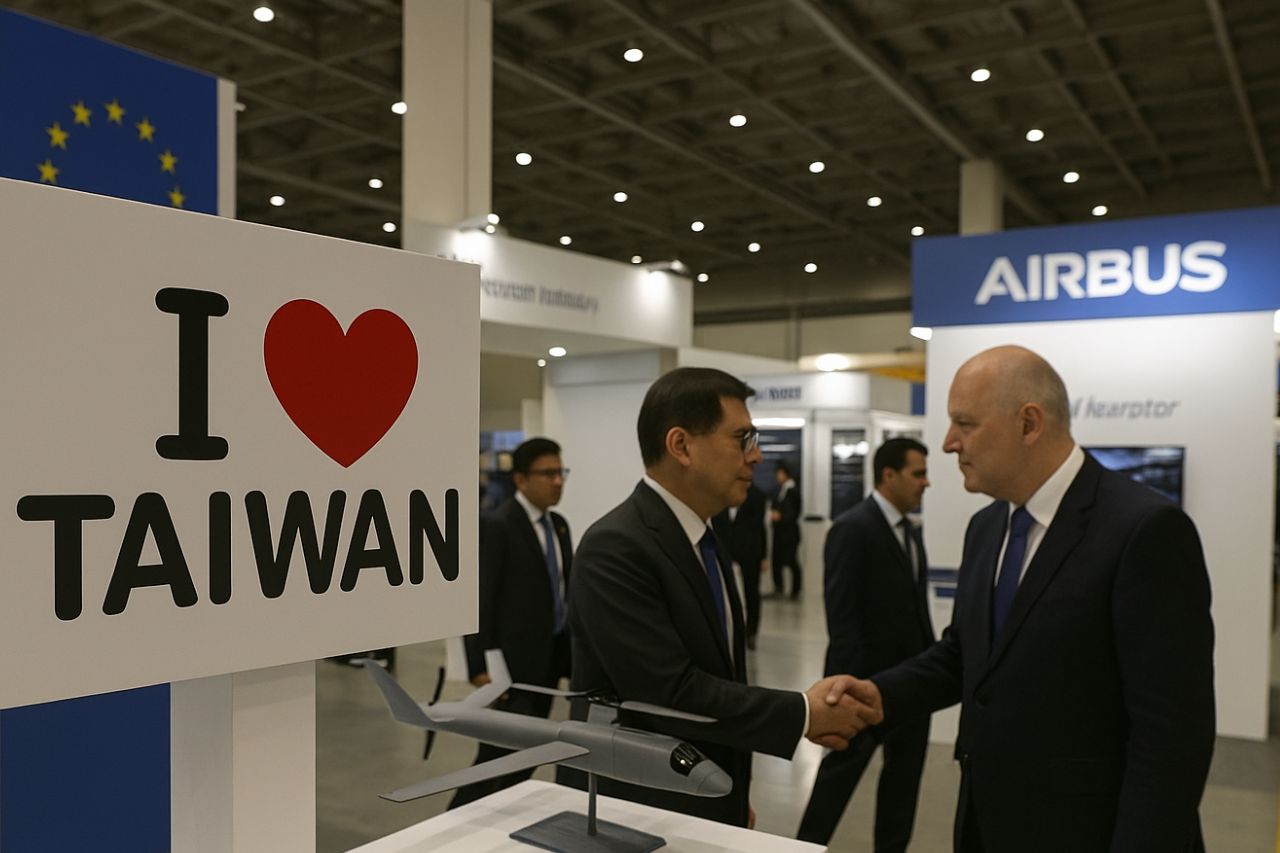In an arms market long dominated by the United States, Europe raised its profile at Taiwan’s largest defence show last week, signaling a cautious but notable shift in Taipei’s international partnerships as the island confronts an increasingly assertive China.
For decades, Taiwan’s arms procurement has relied heavily on the United States, with European nations largely steering clear of sales due to concerns about Chinese retaliation.
Beijing views Taiwan as part of its territory and has repeatedly warned against foreign defence cooperation with Taipei. Taiwan, however, rejects China’s sovereignty claims, insisting its future must be decided by its own people.
How has the situation changed for Europe and Taiwan?
That longstanding hesitancy is beginning to soften. Central and eastern European states, emboldened by their own experiences with Russian aggression since the 2022 invasion of Ukraine, have shown a growing willingness to engage with Taiwan on defence and security matters.
At the Taipei Aerospace and Defence Technology Exhibition, Taiwan Defence Minister Wellington Koo toured the Czech pavilion, where he was welcomed by Pavel Fischer, chairman of the Czech Senate’s Foreign Affairs, Defence and Security Committee.
“Today in Taiwan, we have many partners to work with,” Fischer was quoted by Reuters. “We know the complexity of Taiwan in the international arena, because of the active measures by the Communist Party of China.”
How do European nations “heart” Taiwan for defence contracts?
The German Trade Office Taipei participated in the show for the first time, highlighting Germany’s aerospace and security technologies. Airbus also made its debut, showcasing the Flexrotor tactical drone capable of 14-hour intelligence and surveillance missions.
The display bore a sticker declaring, “I heart Taiwan,” underscoring the symbolic nature of Europe’s presence. Airbus noted that its stand went beyond commercial aircraft, offering helicopter applications for search and rescue, law enforcement, and secure communications.
Taiwan’s diplomacy has also widened its European footprint. Earlier this month, Foreign Minister Lin Chia-lung visited Prague, Rome, and Vienna, just days after Chinese Foreign Minister Wang Yi made a stop in Austria, a reflection of the delicate balancing act European capitals must manage.
How is the US strengthening its defence ties with Taiwan?
Despite Europe’s increased visibility, US companies remain the cornerstone of Taiwan’s defence supply. Lockheed Martin, maker of the F-16 fighter jet, maintained a strong presence at the exhibition.
Historically, Europe has supplied Taiwan with high-value weapons such as French Mirage jets in the early 1990s and Dutch submarines in the 1980s. But such deals have been absent for three decades due to Chinese pressure.
Can Europe upend the US as Taiwan’s top defence supplier?
Still, Britain has discreetly supported Taiwan’s indigenous submarine programme, and European drone partnerships with Taiwanese firms are quietly expanding. “There is much less caution now. The world has changed because of Ukraine,” said an executive at a Taiwanese drone manufacturer, requesting anonymity for security reasons.
While Europe is unlikely to supplant the United States as Taiwan’s primary arms supplier, its growing involvement highlights a geopolitical shift: Beijing’s pressure may no longer be enough to keep European players entirely out of Taiwan’s defence orbit.
